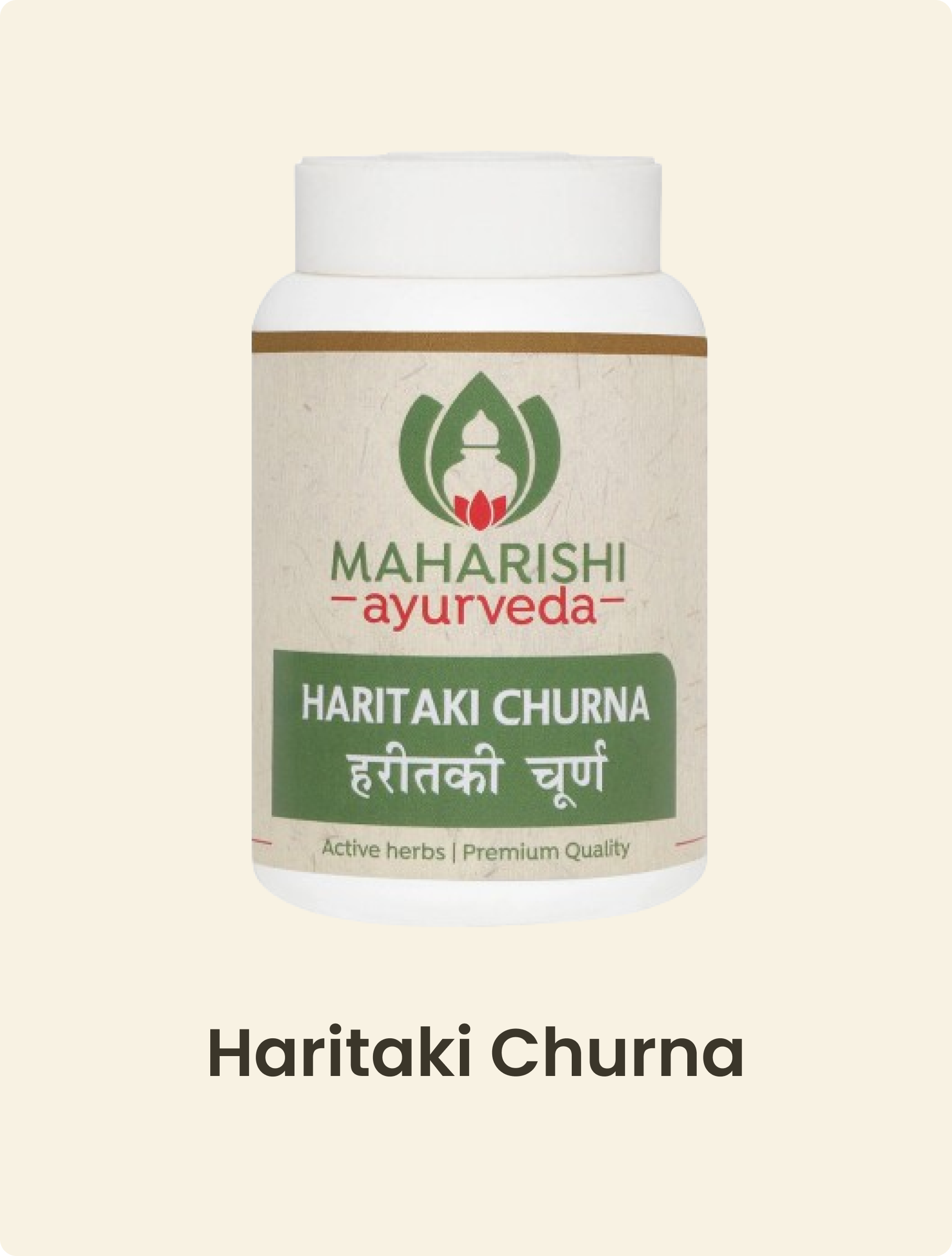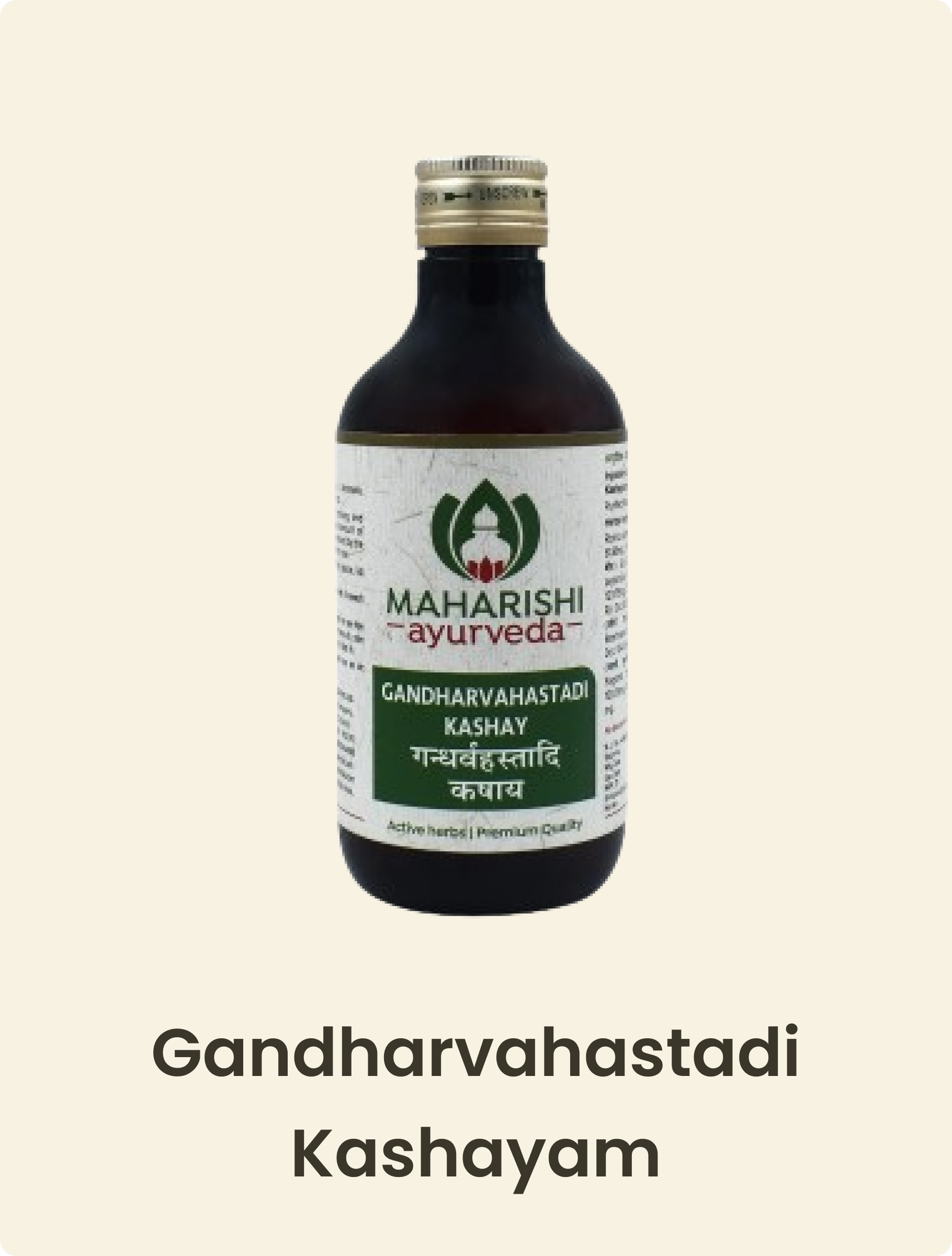Kostha: Your unique GUT
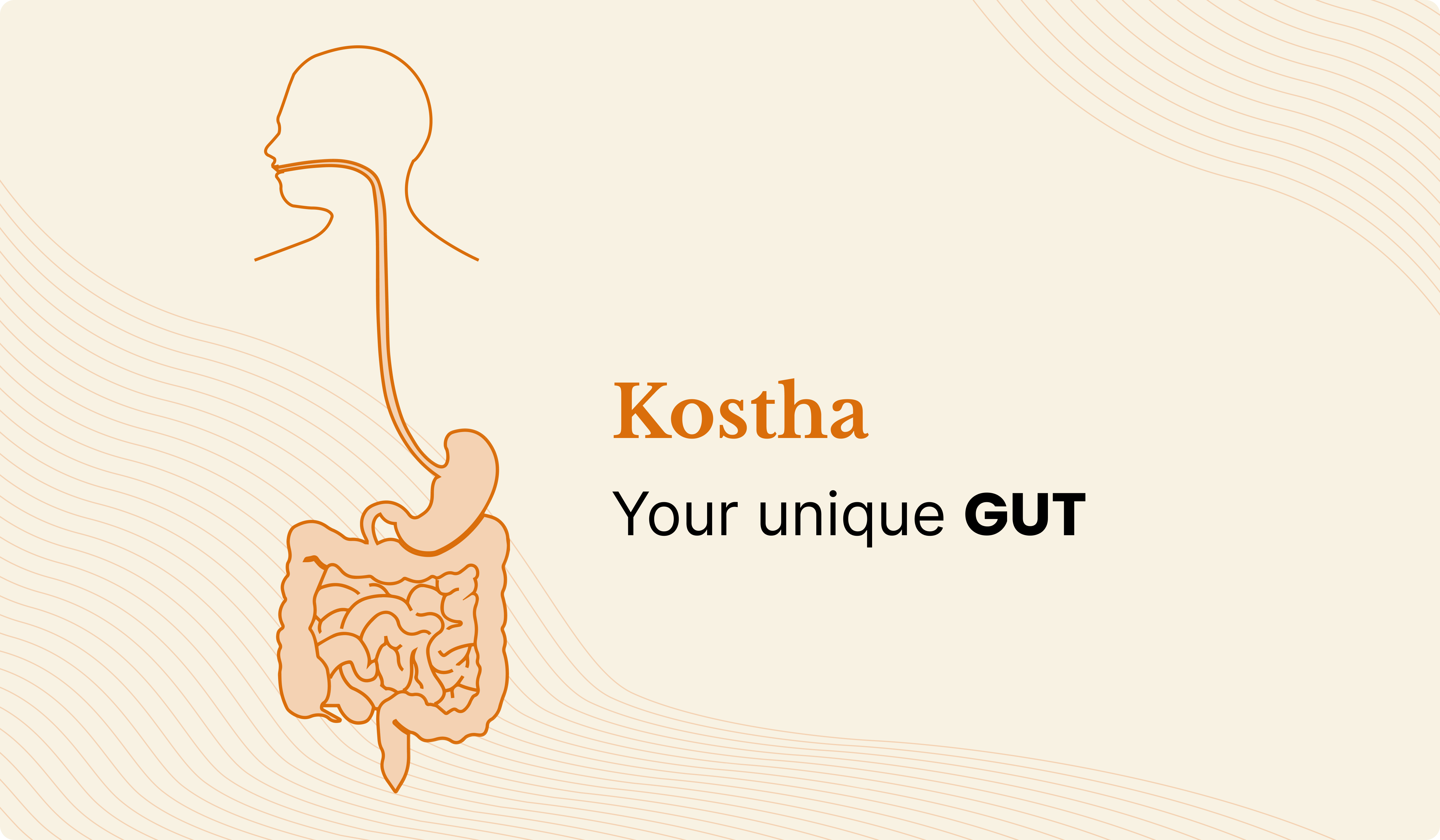
Gastro Wellness | Ayur AI
Dr. Prathiban R ,B.A.M.S., MSc,Ph.D
Updated on MAY 18,2024
In Ayurveda, the concept of Kostha is pivotal for understanding the digestive health and overall well-being of an individual. The term "Kostha" has dual interpretations: anatomical and functional. Anatomically, it refers to the spaces or cavities within the body, such as the thoracic and abdominal cavities where visceral organs reside. Functionally, Kostha concentrates on the digestive system, particularly bowel movements, which vary according to an individual's Prakriti (body constitution). So, Kostha is Gastro-intestinal tract.

Types of Kostha

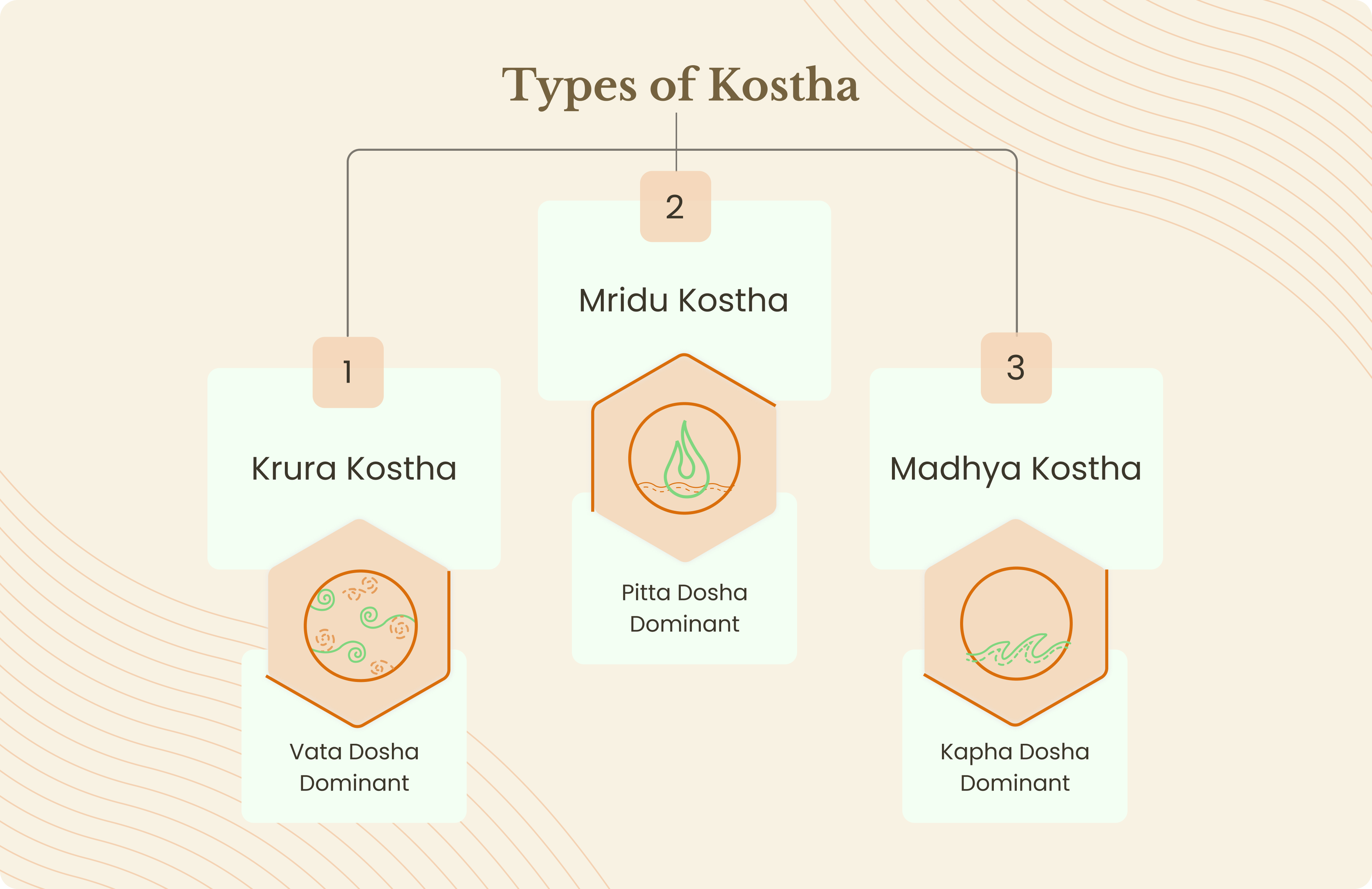
Kostha is classified into three main types based on the predominance of the Doshas in the body:
- Krura Kostha (Rigid Digestive Type) - Dominant in Vata Dosha
- Mridu Kostha (Sensitive Digestive Type) - Dominant in Pitta Dosha
- Madhya Kostha (Balanced Digestive Type) - Dominant in Kapha Dosha

Krura Kostha

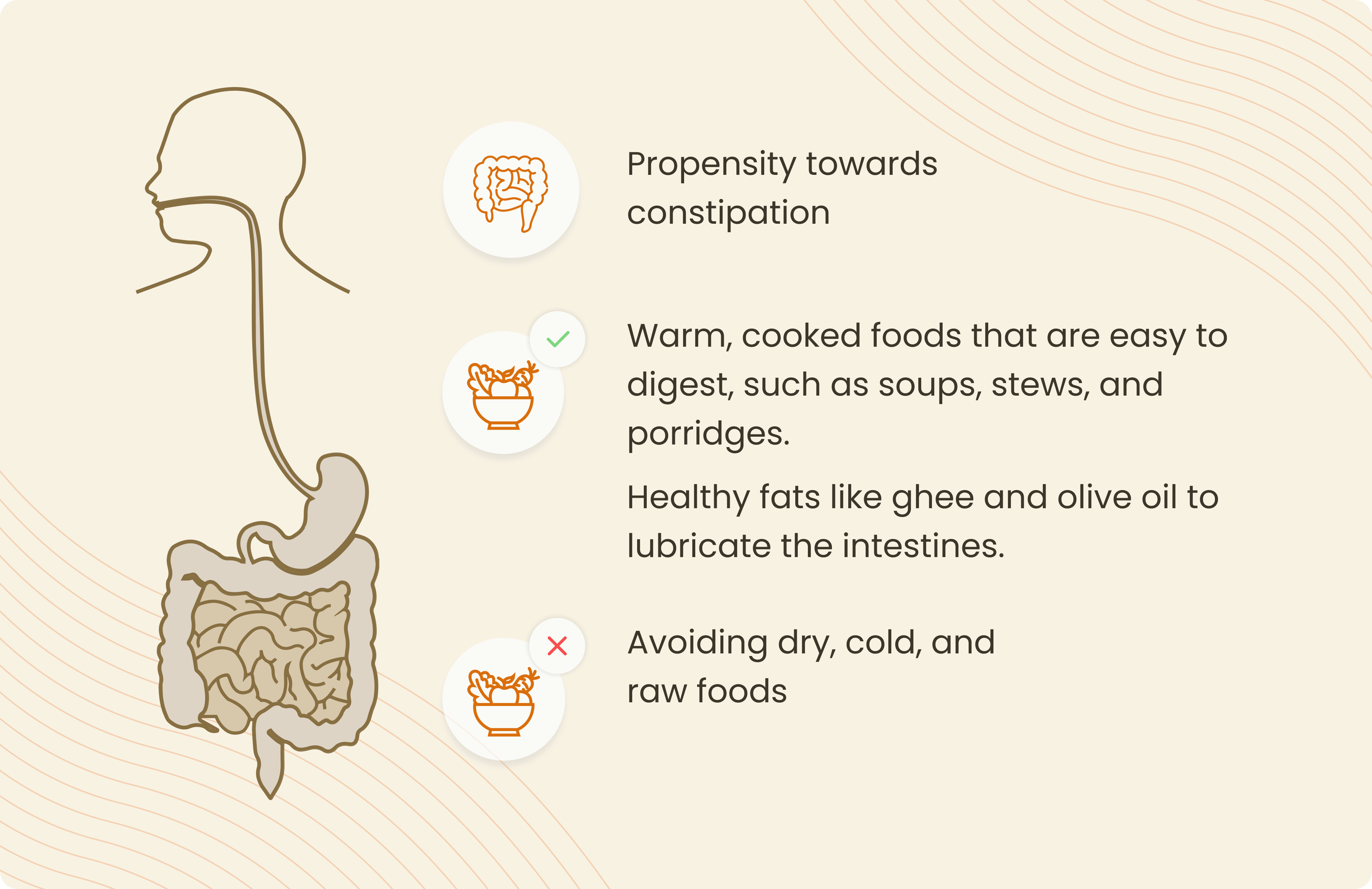
Krura Kostha indicates a Vata predominance in the gastro-intestinal tract, resulting in reduced liquid content in the stool and leading to hard stools. This can cause difficulty in elimination and may also dry the stool. The Laghu (light) and Ruksha (dry) qualities of Vata reduce the softness, stickiness, and oiliness of the stool, often resulting in:
- Difficulty in defecation
- Hard and dry stools
- A propensity towards constipation
- People with Krura Kostha are more prone to these issues, although they may not necessarily experience them constantly.
Diet for Krura Kostha
- Warm, cooked foods that are easy to digest, such as soups, stews, and porridges.
- Incorporating healthy fats like ghee and olive oil to lubricate the intestines.
- Sweet, sour, and salty tastes to pacify Vata.
- Avoiding dry, cold, and raw foods.
- Staying hydrated with warm herbal teas and water.

Mridu Kostha

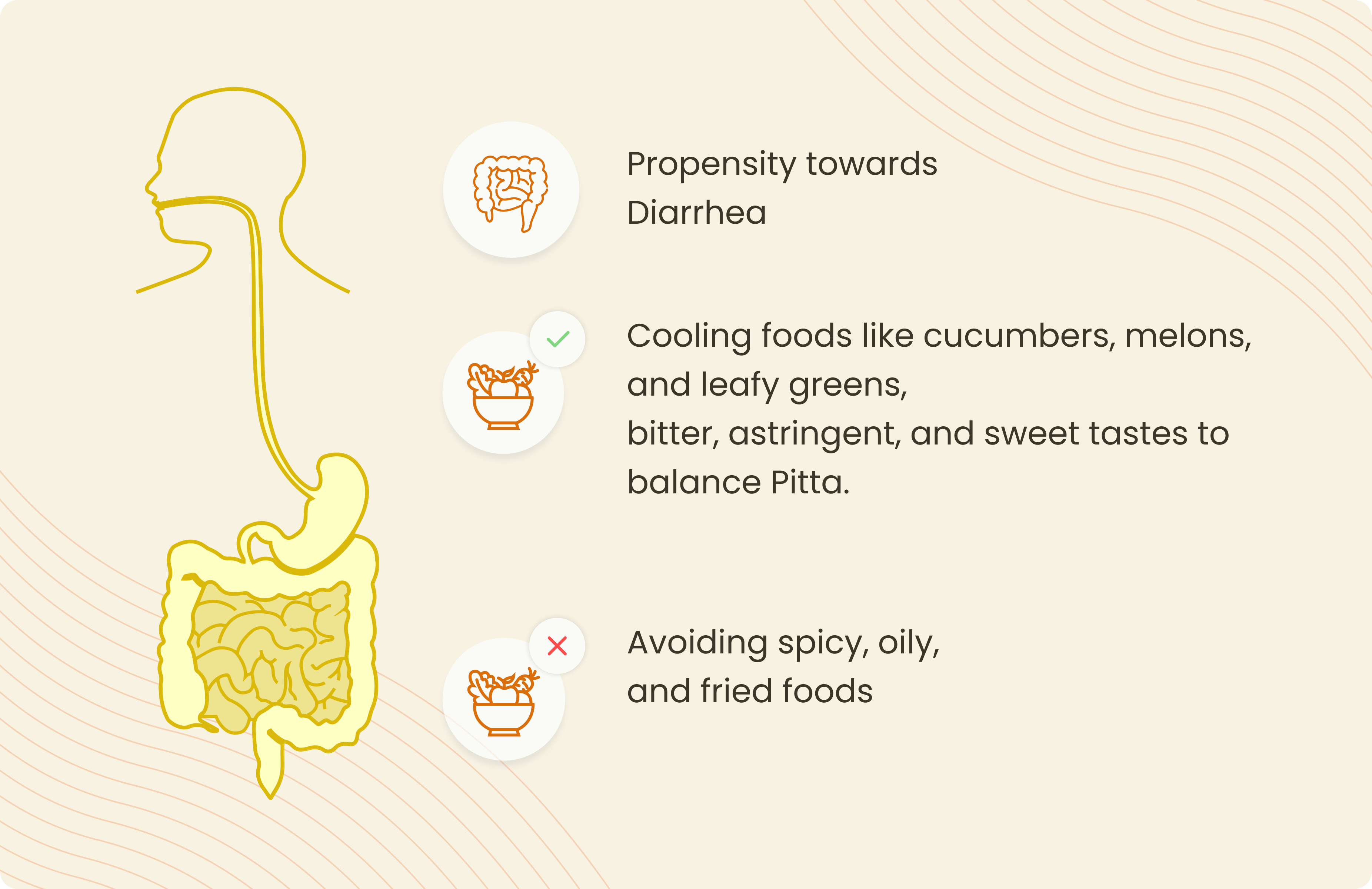
Mridu Kostha is characterized by a predominance of Pitta in the gastro-intestinal tract, which slightly increases the liquid content in the fecal matter due to its Drava (liquid) quality. This results in semi-solid discharge of fecal matter. Individuals with Mridu Kostha are more prone to:
- Loose or semi-solid stools
- Increased frequency of defecation
- Diarrhea
While these conditions are more common, it does not mean that individuals with Mridu Kostha will always experience them.
Diet for Mridu Kostha
For individuals with Mridu Kostha, a diet that balances Pitta is recommended. This includes:
- Cooling foods like cucumbers, melons, and leafy greens.
- Bitter, astringent, and sweet tastes to balance Pitta.
- Avoiding spicy, oily, and fried foods.
- Eating smaller, more frequent meals to prevent overheating.
- Including herbs and spices that aid digestion without increasing heat, such as coriander, fennel, and mint .

Madhya Kostha

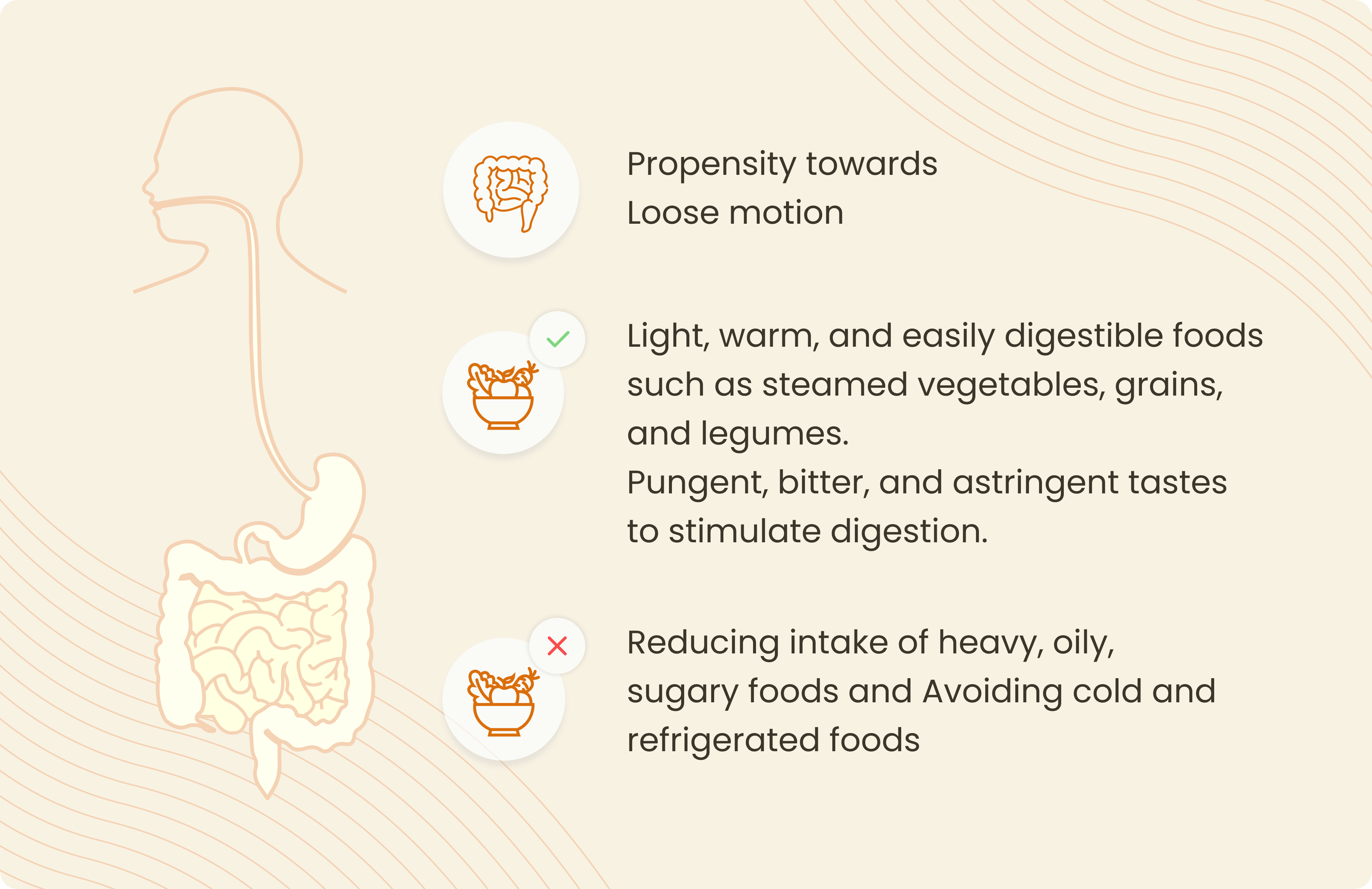
Madhya Kostha signifies a predominance of Kapha in the gastro-intestinal tract, leading to the passage of soft and solid stools, which is considered ideal. An optimum level of Kapha maintains balance by controlling Vata and Pitta, thus preventing loose and hard stools. A propensity towards loose motion.
Diet for Madhya Kostha
For individuals with Madhya Kostha, a diet that balances Kapha is beneficial. This includes:
- Light, warm, and easily digestible foods such as steamed vegetables, grains, and legumes
- Pungent, bitter, and astringent tastes to stimulate digestion
- Reducing intake of heavy, oily, and sugary foods.
- Incorporating spices like ginger, black pepper, and turmeric to enhance digestive fire.
- Avoiding cold and refrigerated foods.

Bowel Evacuators

Abhayarishta, Haritaki Churna, Gandharvahastadi Kashayam are bowel evacuators which are recommended based on your prakriti, kostha status only advised to take after consultation with Doctor.






